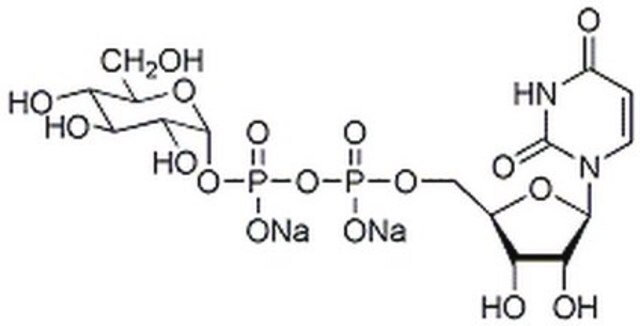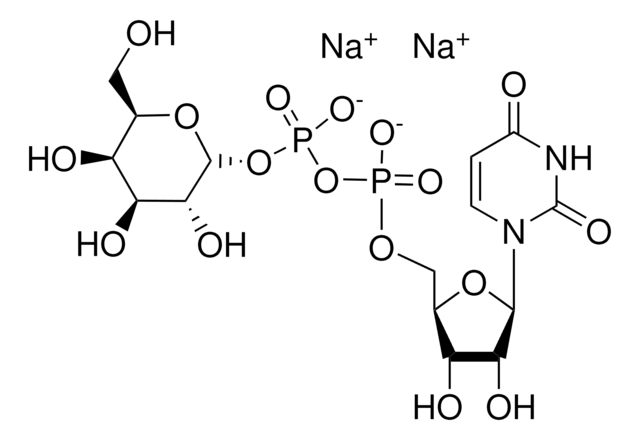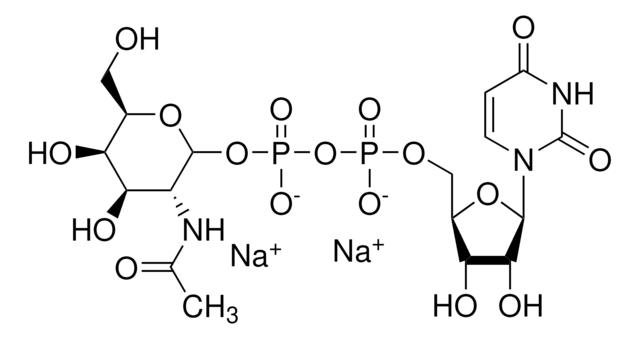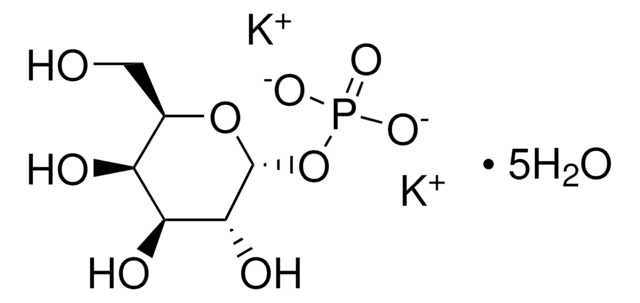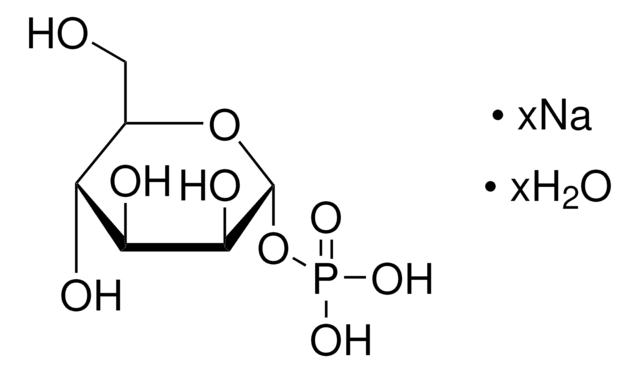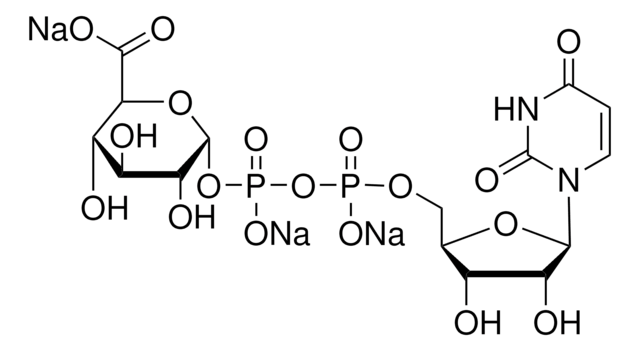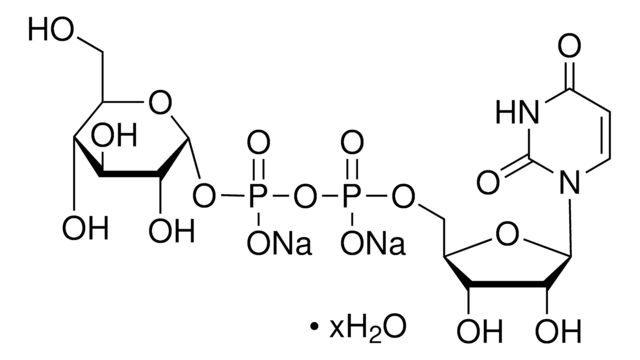G5131
Guanosine 5′-diphospho-D-mannose sodium salt from Saccharomyces cerevisiae
Type I, ≥97% (HPLC)
Synonym(e):
GDP-Man, GDP-mannose
About This Item
Empfohlene Produkte
Typ
Type I
Assay
≥97% (HPLC)
Lagertemp.
−20°C
SMILES String
[Na].NC1=NC(=O)c2ncn(C3OC(COP(O)(=O)OP(O)(=O)OC4OC(CO)C(O)C(O)C4O)C(O)C3O)c2N1
InChI
1S/C16H25N5O16P2.Na.H/c17-16-19-12-6(13(28)20-16)18-3-21(12)14-10(26)8(24)5(34-14)2-33-38(29,30)37-39(31,32)36-15-11(27)9(25)7(23)4(1-22)35-15;;/h3-5,7-11,14-15,22-27H,1-2H2,(H,29,30)(H,31,32)(H3,17,19,20,28);;
InChIKey
MEXITZOHWLXZKR-UHFFFAOYSA-N
Suchen Sie nach ähnlichen Produkten? Aufrufen Leitfaden zum Produktvergleich
Allgemeine Beschreibung
Anwendung
Biochem./physiol. Wirkung
Lagerklassenschlüssel
11 - Combustible Solids
WGK
WGK 3
Flammpunkt (°F)
Not applicable
Flammpunkt (°C)
Not applicable
Analysenzertifikate (COA)
Suchen Sie nach Analysenzertifikate (COA), indem Sie die Lot-/Chargennummer des Produkts eingeben. Lot- und Chargennummern sind auf dem Produktetikett hinter den Wörtern ‘Lot’ oder ‘Batch’ (Lot oder Charge) zu finden.
Besitzen Sie dieses Produkt bereits?
In der Dokumentenbibliothek finden Sie die Dokumentation zu den Produkten, die Sie kürzlich erworben haben.
Kunden haben sich ebenfalls angesehen
Artikel
The presence of multiple functional groups and stereocenters in complex carbohydrates makes them challenging targets for the organic chemist.
Glycosyltransferases were initially considered to be specific for a single glycosyl donor and acceptor, which led to the one enzyme-one linkage concept. Subsequent observations have refuted the theory of absolute enzymatic specificity by describing the transfer of analogs of some nucleoside mono- or diphosphate sugar donors.
Unser Team von Wissenschaftlern verfügt über Erfahrung in allen Forschungsbereichen einschließlich Life Science, Materialwissenschaften, chemischer Synthese, Chromatographie, Analytik und vielen mehr..
Setzen Sie sich mit dem technischen Dienst in Verbindung.

